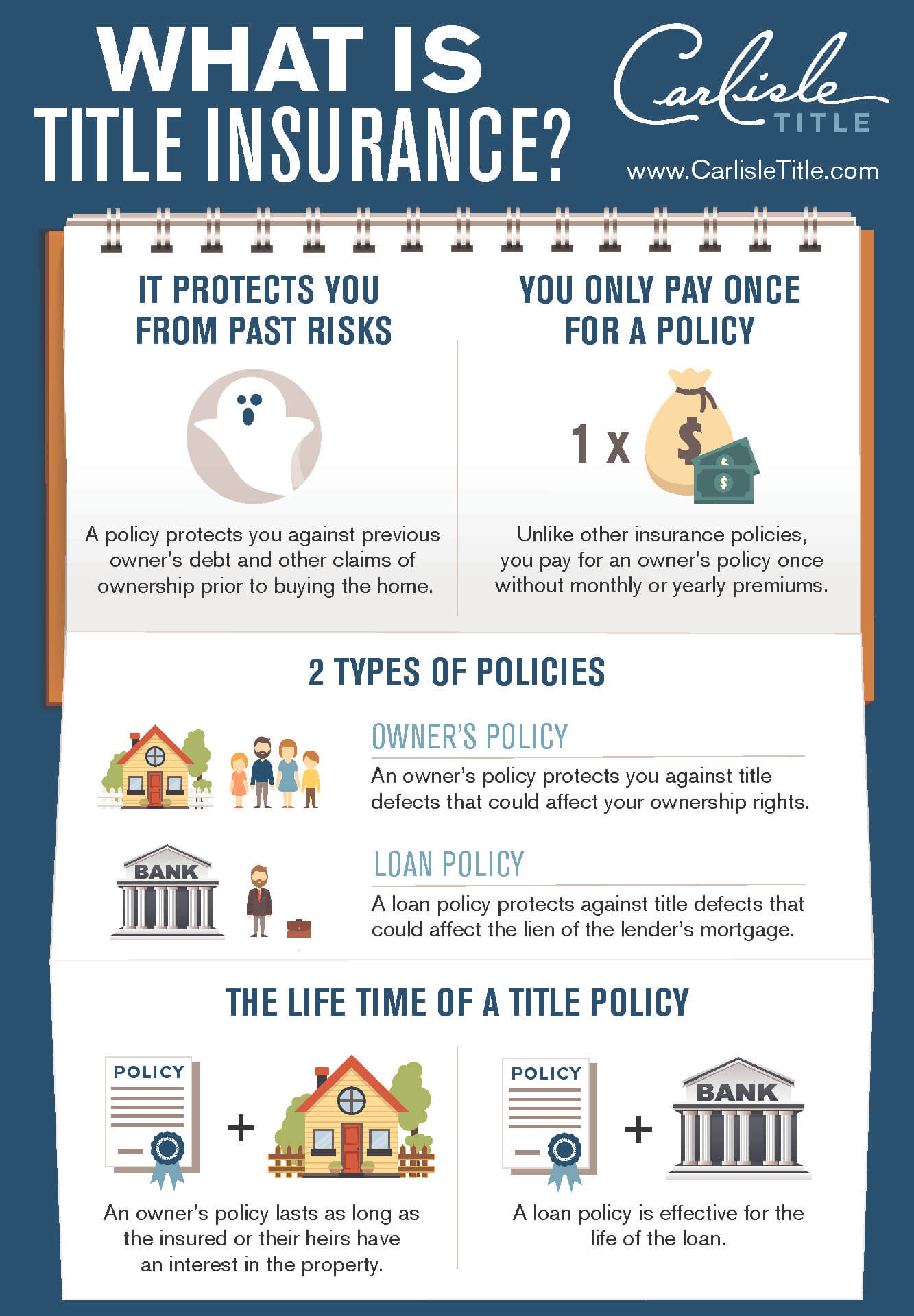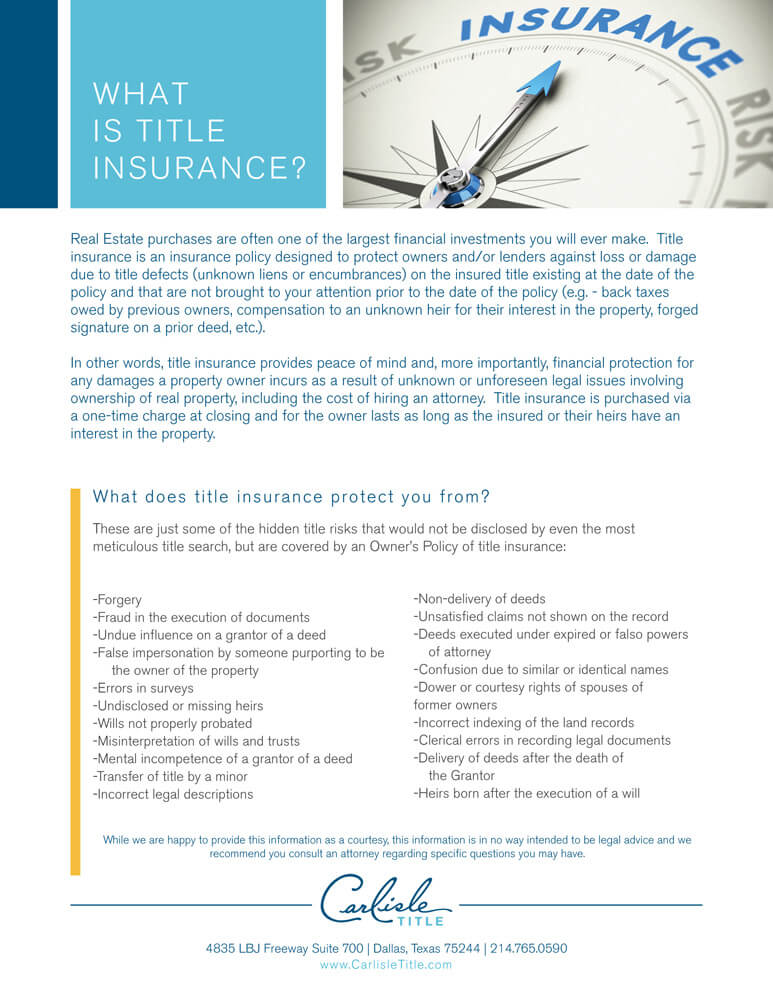IT PROTECTS YOU FROM PAST RISKS
A policy protects you against previous owner’s debt and other claims of ownership prior to buying the home.
YOU ONLY PAY ONCE FOR A POLICY
Unlike other insurance policies, you pay for an owner’s policy once without monthly or yearly premiums.
2 TYPES OF POLICIES
OWNER’S POLICY
An owner’s policy protects you against title defects that could affect your ownership rights.
LOAN POLICY
A loan policy protects against title defects that could affect the lien of the lender’s mortgage.
THE LIFE TIME OF A TITLE POLICY
An owner’s policy lasts as long as the insured or their heirs have an interest in the property.
A loan policy is effective for the life of the loan.
![]()
Real Estate purchases are often one of the largest financial investments you will ever make. Title insurance is an insurance policy designed to protect owners and/or lenders against loss or damage due to title defects (unknown liens or encumbrances) on the insured title existing at the date of the policy and that are not brought to your attention prior to the date of the policy (e.g. – back taxes owed by previous owners, compensation to an unknown heir for their interest in the property, forged signature on a prior deed, etc.).
In other words, title insurance provides peace of mind and, more importantly, financial protection for any damages a property owner incurs as a result of unknown or unforeseen legal issues involving ownership of real property, including the cost of hiring an attorney. Title insurance is purchased via a one-time charge at closing and for the owner lasts as long as the insured or their heirs have an interest in the property.
What does title insurance protect you from?
These are just some of the hidden title risks that would not be disclosed by even the most meticulous title search, but are covered by an Owner’s Policy of title insurance:
- Forgery
- Fraud in the execution of documents
- Undue influence on a grantor of a deed
- False impersonation by someone purporting to be the owner of the property
- Errors in surveys
- Undisclosed or missing heirs
- Wills not properly probated
- Misinterpretation of wills and trusts
- Mental incompetence of a grantor of a deed
- Transfer of title by a minor
- Incorrect legal descriptions
- Non-delivery of deeds
- Unsatisfied claims not shown on the record
- Deeds executed under expired or falso powers of attorney
- Confusion due to similar or identical names
- Dower or courtesy rights of spouses of former owners
- Incorrect indexing of the land records
- Clerical errors in recording legal documents
- Delivery of deeds after the death of the Grantor
- Heirs born after the execution of a will
While we are happy to provide this information as a courtesy, this information is in no way intended to be legal advice and we recommend you consult an attorney regarding specific questions you may have.


